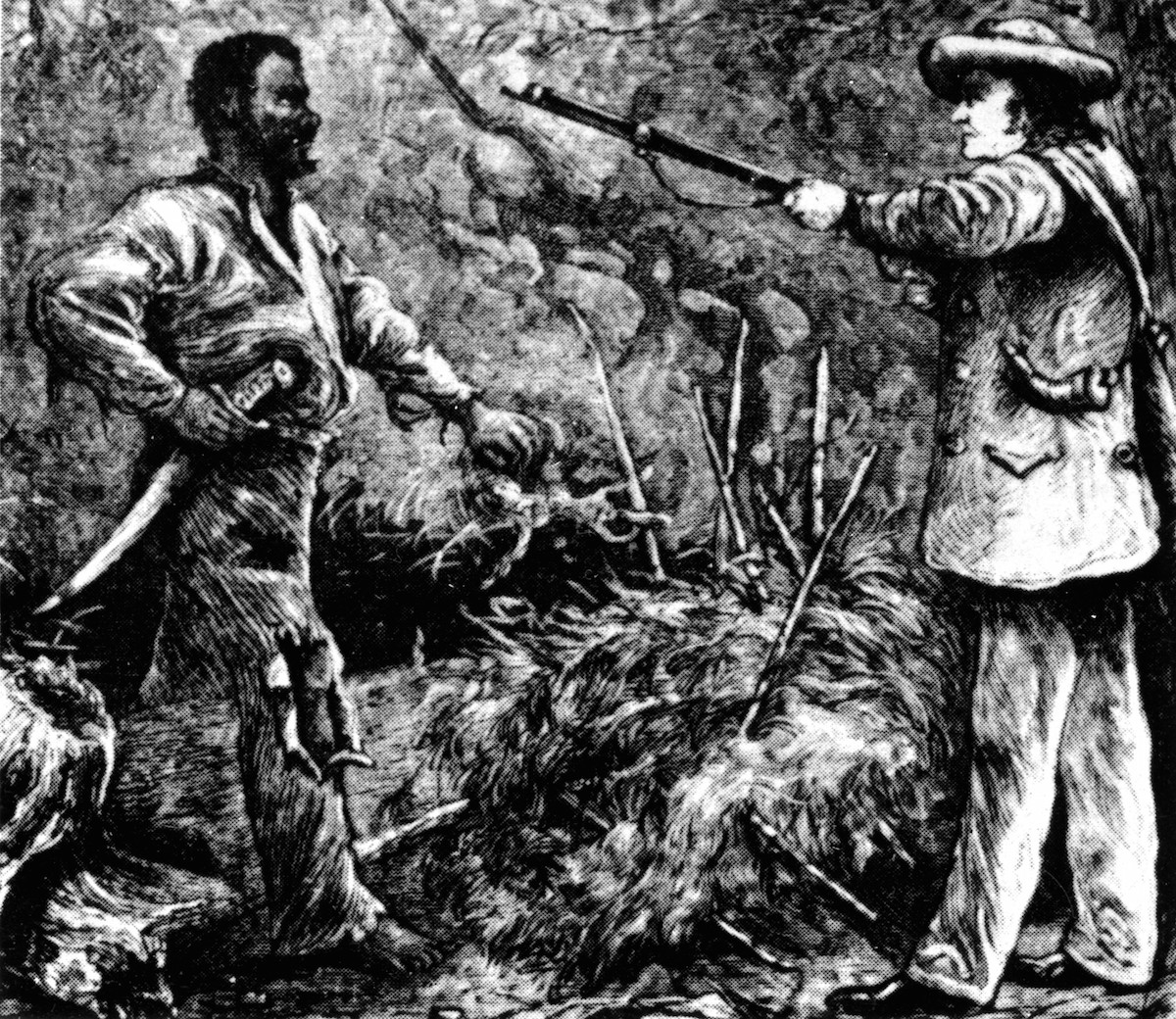
It was in August of 1831 that Nat Turner led a rebellion of Virginia slaves that left dozens of people dead, including small children. One-hundred and eighty-five years ago this week, in the early hours of Aug. 22, Turner and a some of his fellow slaves entered Turner’s master’s home, having decided that Turner “must spill the first blood” to start the rebellion, as Turner would later recount. Turner was soon captured and the uprising was suppressed. But in the weeks immediately afterward, Americans everywhere clamored to know something that may now seem obvious: Why had he done it? Nearly two centuries later, the legacy of that question is still evolving.
In November of 1831, shortly before to his execution, Turner gave a jailhouse confession, to attorney Thomas Gray, to answer the question. The story began, Turner said, in his childhood, when he had an experience that seemed to his family an indication of the powers of prophesy. Growing up believing that he was destined for great things, he eventually reached a turning point, as he recalled:
As I was praying one day at my plough, the spirit spoke to me, saying, “Seek ye the kingdom of Heaven and all things shall be added unto you.” Question—what do you mean by the Spirit. Ans. The Spirit that spoke to the prophets in former days—and I was greatly astonished, and for two years prayed continually, whenever my duty would permit—and then again I had the same revelation, which fully confirmed me in the impression that I was ordained for some great purpose in the hands of the Almighty. Several years rolled round, in which many events occurred to strengthen me in this my belief. At this time I reverted in my mind to the remarks made of me in my childhood, and the things that had been shewn me—and as it had been said of me in my childhood by those by whom I had been taught to pray, both white and black, and in whom I had the greatest confidence, that I had too much sense to be raised, and if I was, I would never be of any use to any one as a slave. Now finding I had arrived to man’s estate, and was a slave, and these revelations being made known to me, I began to direct my attention to this great object, to fulfil the purpose for which, by this time, I felt assured I was intended.
That sense of purpose was why Turner once ran away but soon returned to the plantation and to bondage. That was why, he said, he waited for a sign—and, believing he had seen it, took action. That was why, shortly before his execution, he reflected, “I am here loaded with chains, and willing to suffer the fate that awaits me.”
Gray’s judgment on all this? “He is a complete fanatic.”
But, even then, some saw his fanaticism in a different context. The next session of the Virginia Legislature was the scene of several speeches that used the rebellion as reason to call for abolition—including one by Thomas Jefferson Randolph, the founding father’s grandson, and C.J. Faulkner who, in speaking of the differences between the North and the South, was particularly prescient: “You must adopt some plan of emancipation,” he declared, “or worse will follow.”
Get your history fix in one place: sign up for the weekly TIME History newsletter
During the mid-20th century, the Nat Turner story was revisited by many, in the course of the movement for the study of black history in schools, an attempt to remedy the fact that many mainstream textbooks glossed over or omitted major turning points in the history of the U.S. if the people involved were black. For example, as TIME explained in 1964, a teacher’s guide had to be distributed to schools to point out to educators and students that “contrary to folklore, slaves hated slavery so passionately that thousands joined bloody revolts. The biggest was led in 1831 by Nat Turner, a Virginia slave preacher, whose rebels killed 60 whites before he was captured and hanged.”
Then, in 1967, the novelist William Styron’s The Confessions of Nat Turner turned Turner’s story into an award-winning bestseller, which he called a “meditation on history” rather than a historical novel. “This novel goes beyond a mere retelling of history to show how the fettered human spirit can splinter into murderous rage when it is goaded beyond endurance,” raved TIME’s critic.
Not everyone, however, loved the novel—which inspired a backlash that culminated in the 1968 publication of William Styron’s Nat Turner: Ten Black Writer Respond, in which Styron was called out for minimizing the degree to which Turner was just one of many slaves who rightfully harbored rebellious desires, among other critiques. Some of the reaction to that book, at least as expressed by TIME, now reads as dated: the magazine’s review of the responses called the black writers “blinded by their own racism” against Styron, who was white.
The opportunities to assess and reassess Turner’s legacy, however, are far from over: The Sundance sensation Nat Turner film, The Birth of a Nation, arrives in theaters in October.
More Must-Reads from TIME
- Donald Trump Is TIME's 2024 Person of the Year
- Why We Chose Trump as Person of the Year
- Is Intermittent Fasting Good or Bad for You?
- The 100 Must-Read Books of 2024
- The 20 Best Christmas TV Episodes
- Column: If Optimism Feels Ridiculous Now, Try Hope
- The Future of Climate Action Is Trade Policy
- Merle Bombardieri Is Helping People Make the Baby Decision
Write to Lily Rothman at lily.rothman@time.com